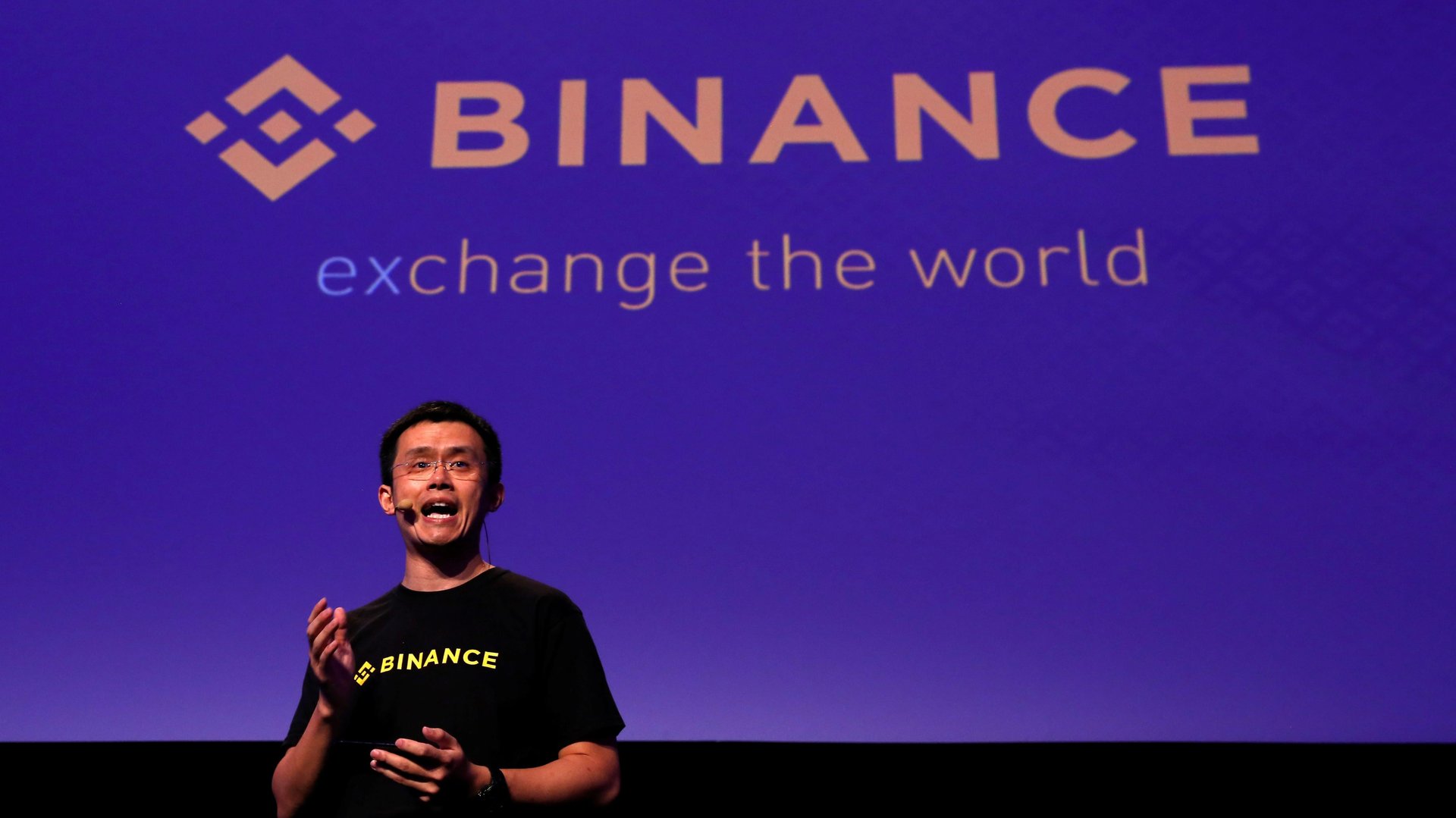An ownership clash with US-based Binance has halved crypto trade on India's WazirX
Apart from money laundering, the ED raised questions over WazirX's complicated ownership structure.

WazirX, one of India’s biggest cryptocurrency exchanges, is in a fix following an ownership row with US-based trading platform Binance, seemingly set off by a money-laundering probe in India.
On Aug. 5, Binance CEO Changpeng Zhao said his company didn’t hold any stake in WazirX’s parent entity Zanmai Labs. The world’s largest cryptocurrency exchange by volume, he said, only provided wallet services to WazirX as “a technical solution.”
This contradicted a November 2019 blog post, in which Binance said it had “acquired” WazirX. However, that deal was never completed, according to Zhao.
This sparked fears of WazirX shutting down.
By Aug. 8, trading volume on the Indian cryptocurrency exchange fell by 50% to $3.9 million, from $8.09 million two days ago, according to Nomics, a crypto-asset data company.
WazirX co-founder Nischal Shetty has refuted Zhao’s denial. Citing an agreement (pdf) apparently last revised on July 1 this year, he said his exchange was “still owned by Binance.”
“Zanmai Labs has license from Binance to operate INR-Crypto pairs in WazirX,” Shetty said.
What led to this war of words?
On Aug. 5, the enforcement directorate (ED) froze WazirX’s assets worth Rs64.67 crore in connection with a money laundering probe.
“...large amount of funds were diverted by the fintech companies to purchase crypto assets and then launder them abroad,” the ED said in a statement (pdf). “It is seen that maximum amount of funds were diverted to WazirX exchange and the crypto-assets so purchased have been diverted to unknown foreign wallets.”
WazirX had “actively” helped around 16 fintech companies facing money laundering charges to allegedly divert their said proceeds of crime towards cryptocurrencies, the ED has alleged. WazirX’s complicated ownership structure is also under the lens.
WazirX is not alone
At least nine cryptocurrency exchanges in India, including CoinDCX and CoinSwitch Kuber, are under the scanner for similar reasons. These involve allegations of assisting China-backed firms in illegally tidying up profits abroad.
Meanwhile, over the past few months, the exchanges, in general, have been struggling to keep up with market volatility and the implementation of India’s new tax laws.
This has further impacted trading volumes in India’s crypto sector.
“Close to 70-80% of trading activity across all Indian exchanges has gone down,” Sharat Chandra, a blockchain and emerging tech evangelist, told Quartz.
